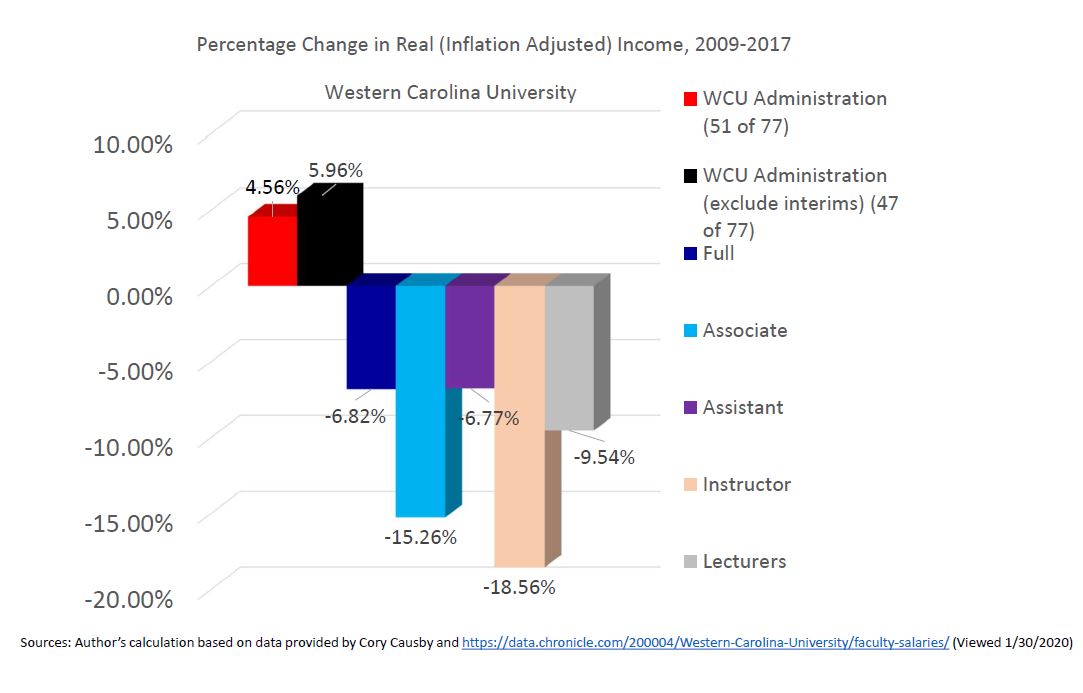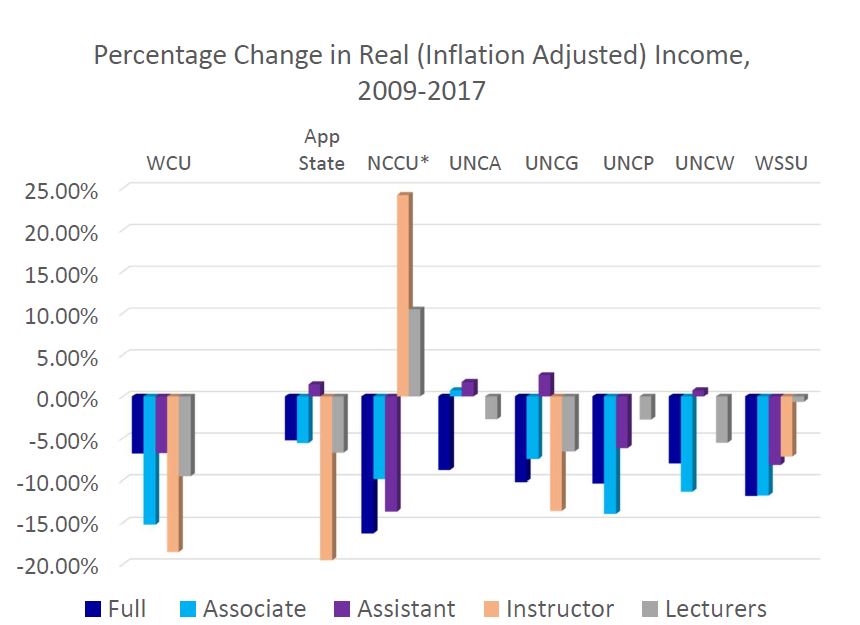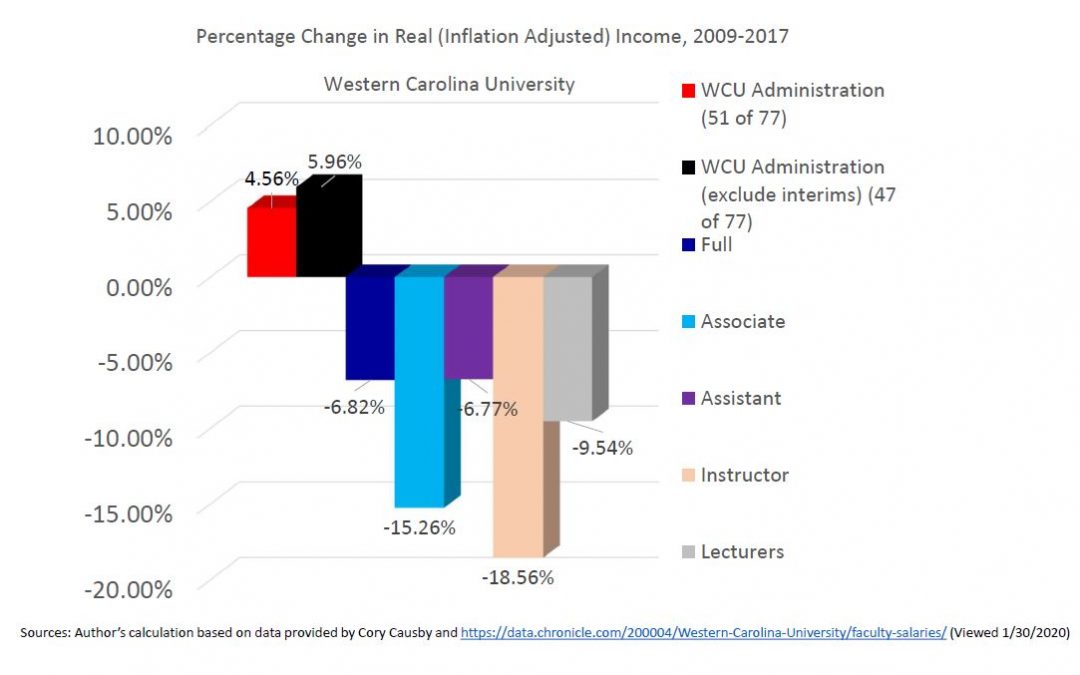One of the central issues in the agenda of the Faculty Senate and the WCU administration this year is to address faculty salaries. In 2018-2019, the Faculty Senate received a report from a Working Group of Faculty Salaries by the then A&S Dean, now Interim Provost Richard Starnes demonstrating significant issues of salary inversion and compression for tenured and tenure track faculty. Now a different element of the issue has come into focus.
At the Faculty Senate of 2/12/2020, Kadie Otto, School Director of MESH and chair elect of the Faculty, and Sean Mulholland, Professor of Economics, Management and Project Management and faculty senator, gave a presentation of an analysis of salaries at WCU of different tiers comparing real salaries over the period of 2009-2017 (encompassing the end of the Great Recession), and comparing the salaries with some other UNC institutions, reflecting some substantial differences, although all comparison institutions have been affected. How much of an outlier is WCU is still a question of investigation. Below are two graphs prepared by Sean Mulholland showing the trend for WCU and for other institutions.

Comparison Real Wage change for faculty ranks and administrators.
The data sources are WCU’s Human Resources and Payroll and Chronicle.com viewed on 1/30/2020

*NCCU’s Instructors and Lecturers are 2010-2017 due to data availability. Moreover, there were only 3 Instructors and 3 Lecturers at NCCU in 2010. By 2017 there were 6 Instructors and 26 lecturers at NCCU.
The full presentation can be found under the Sharepoint for the Faculty Senate accessed via intranet here:
One point to note is that senior administrative salaries follow a positive trend over the same period. UNC institutions have more flexibility with salary offers, and recurrent theme in administrative searches at WCU is that a more competitive compensation package offers are needed to bring people in that position to our geographic area. We could ask one hypothetical. WCU improved its performance metrics over the past decade when it comes to enrollment growth, retention, and student academic performance. Would we have achieved these without attracting and retaining key administrator talent? If we had chosen to go the other way, and directed these administrative salary increases instead to faculty salaries, would we have achieved the same results? Regardless of how you would answer, there is simply no doubt that faculty also played a key role in improved institutional performance in the past decade.
WCU Administration under the leadership of Chancellor Kelli Brown has made a commitment to mobilize what resources are available to provide relief to affected faculty this year. This week, a new University standing committee on Faculty Salaries, convened jointly by Interim Provost Starnes and myself as Faculty Chair, will convene to present recommendations for the Chancellor on correctives for this year. The hope is that this Standing Committee will follow up in multi-year sustained strategy to help ease this strain.
But the burden for a long term solution cannot rest on WCU administrators alone. It is time for members of the UNC Board of Governors and the NC General Assembly to recognize that there is a crisis at hand and a dedicated multi-year project of reinvestment in our human infrastructure in higher education in this state is absolutely imperative.


What about a graph for the staff. I understand we are just staff but aren’t we just as important too?
Thanks Josh. We found that the Chronicle does have staff data, but doesn’t have the administrator salary data. We’ll forward this to the Staff senate, as this is an issue that historically has also affected SHRA and EHRA too.